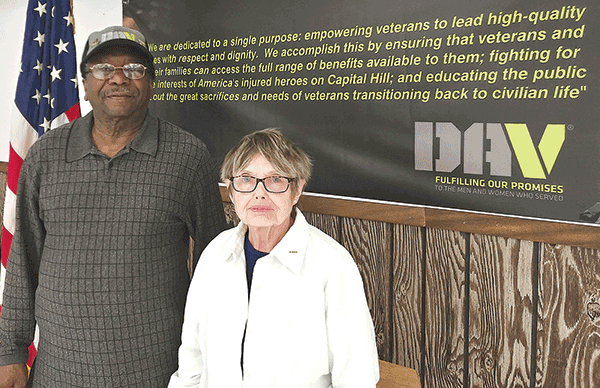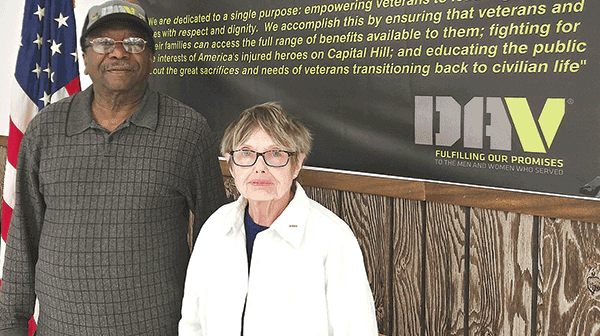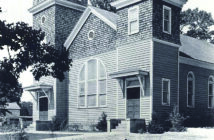
Tonia Golden loves helping people. That’s why she became a nurse.
Even though she’s retired, Golden continues to serve by facilitating a post-traumatic stress disorder group at Chester’s Disabled American Veterans chapter.
The group, which meets at 11 a.m. Thursdays at 6221 Newbys Bridge Road, averages about 12 members at each meeting, said Golden, who grew up in Baltimore and served in Vietnam as a nurse in the Army Nurse Corps from 1966-70.
Members come together to chat about life. “It’s very informal,” she said. “Some days we don’t even talk about PTSD. Sometimes they will approach it indirectly.”
Sam Callis, the chapter treasurer, said the group helps attendees cope with “triggers,” or things that provoke anxiety. These can include sights, sounds, smells, or thoughts that remind one of a traumatic event.
“There is no cure for PTSD,” Golden said. “But one can learn what can trigger your events. The group can help you manage your triggers.”
“What we discuss is confidential,” Callis said. “Someone might have had a bad night, and they just need someone to talk to.”
The group helps because “it’s been years, and a lot of veterans had this bottled up inside and never had really anyone to talk to,” Callis said.
Most of the group participants served in Vietnam, but several were in Iraq or Afghanistan.
Although Vietnam-era veterans suffered mistreatment by some when they returned home and veterans of the modern era receive more public support, Golden said that Vietnam-era veterans had a larger support group amongst themselves because more men served in the military at that time because of the draft, which ended Jan. 27, 1973.
“Today, a veteran (of Iraq or Afghanistan) doesn’t feel the same support from his fellow veterans. He has to look for [support],” Golden said. “The community doesn’t understand. Less than 1 percent of the population is in the military, so if you’re coming home from Afghanistan or Iraq, who do you talk to?”
Callis said that when those who served in Vietnam returned home, they may have faced questions such as, “How many people did you kill?” or “How many babies did you kill?” “There was not any concern for the veterans,” he said.
However, he said the culture changed in the mid-1990s and became more supportive of veterans.
Golden said that Vietnam-era veterans faced additional stress when, after retiring, news had become a 24-hour a day, seven-day-a-week thing. “It doesn’t help when you … turn on the news, and the war is still going on,” Golden said, referring to coverage of the wars in Iraq and Afghanistan.
After leaving the Army, Golden worked off-and-on for 20 years at the Medical College of Virginia in Richmond.
She retired in 2003 but still enjoys helping veterans.
“I’m just doing what I did in Vietnam,” she said. “I think most Army nurses feel the same way. It’s part of who we are.”


